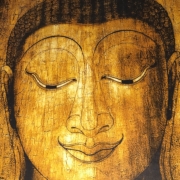5 Intention-setting Ideas to Support Building Trust
If you have difficulty trusting others, you are not alone. And, it might have more to do with a struggle to trust yourself.
Take a moment and think about why you trust someone else. Did it happen over night? Did it happen in response to one interaction? Do you have faith in their abilities? Do you feel that they care about you? Do you feel they were being authentic with you?
Trust can be risky! Trust is required for a healthy relationship and before we can have a healthy relationship with another, we must work on having a healthy relationship with ourselves. If I were to ask you to remember a time when someone broke your trust, I imagine that most of us can quickly remember a time. But if I were to ask you to remember a time when you broke your own trust, would it be so easy to recall?
According to an article in the Harvard Business Review, trust has three core drivers: authenticity, logic and empathy. Therefore, trusting ourselves requires us to connect to our authentic selves, have compassion for ourselves, and align our choices with what we know to be true for ourselves. Unfortunately, many of us struggle in this space due to the fear of being judged by others (AKA the need for approval by others) and/or the fear of disappointing others.
If you find yourself caught in this common human struggle, below are some intention-setting ideas for building trust in yourself:
- Accept yourself. It is mission critical to accept all parts of ourselves, fully and unapologetically! If you find yourself saying to yourself that there is a part, or parts of you that you hate, consider sitting with these parts and having an open dialogue. Give those parts a voice, without judgment. Remember, all parts of us come in service. They adapted and adjusted to keep you safe. Perhaps try writing down the messages that these parts continue to repeat so they know you have heard them. Doing so creates space for you to thank them and to consider releasing them from service as they may be ready to retire!
- Lean on your values. Breaking trust with ourselves is tied to our core values. For example, if one of our core values is honesty and then we lie, we just dishonored ourselves and broke our trust with ourselves. Therefore, if you find yourself in a dilemma or need to make a difficult choice, consider turning to your top core values and let them guide you. Making the decision might be difficult in the moment; however, if it aligns with your core values, you will sense that alignment for much longer. Perhaps display your top core values prominently in your home as a reminder to you as to what is most important, so they are in your awareness in those more challenging moments.
- Identify your strengths. To build trust in yourself, start with what you know to be your strengths. Consider making a list of your strengths and then build on them by doing more with them. The key will be to honor the work, by perhaps journaling at the end of each day to recognize how you demonstrated your strengths that day. For example, if you identified creativity as one of your strengths, write down all of the ways creativity showed up including any out-of-the-box solutions to mundane daily problems.
- Keep promises. This applies to keeping promising to BOTH yourself and to others! This requires setting strong and clear boundaries, including saying no, so others grow. If you can’t (or don’t want to) do something, it is better to say no (even if it makes you very uncomfortable to do so) than to say yes and later break your promise. Consistency in the outcomes (both when saying yes and saying no) is what builds (over time) a trustworthy relationship.
- Practice compassion. As humans, we will make mistakes or take missteps. However, one bad decision or broken promise does not make you a bad person. Failures are vital to our growth and to discovering our core values and strengths. Therefore, befriending our failures, missteps, and mistakes allows us to learn and expand instead of shrink. Consider exercising your self compassion muscle (AKA the heart) by listening to a meditation and/or writing down what you would say to a dear friend in this space. Then, the next time you experience a space of constriction, perhaps offering yourself those same kind words!









